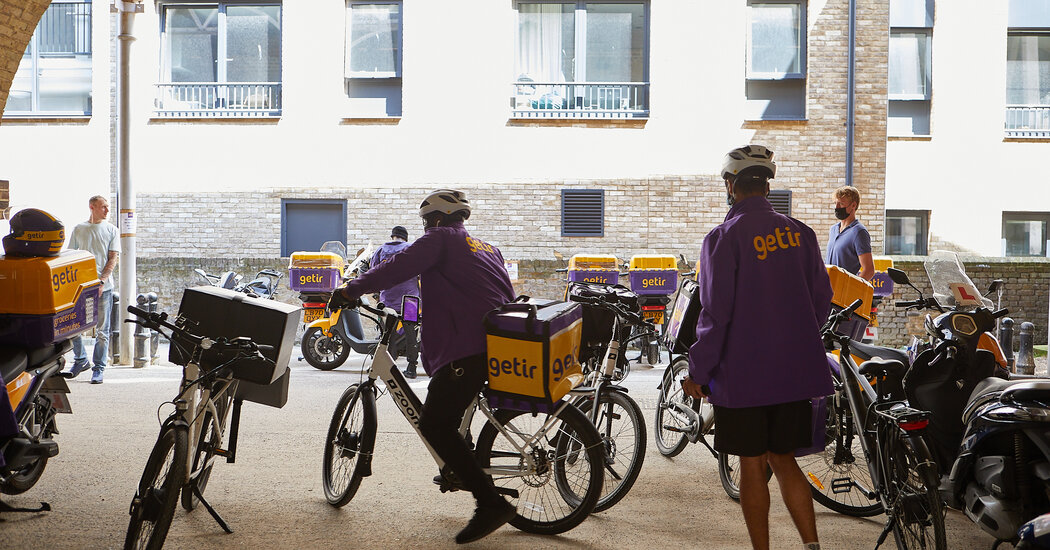Getir, the rapid grocery-delivery company that boomed during Covid lockdowns, said it was ending its operations in the United States and Europe, a major retreat by another pandemic darling.
The company, which aimed to deliver groceries and other small conveniences in as fast as 10 minutes, said that it would refocus on its home base, Turkey. At its height, the privately held Getir was valued at nearly $12 billion after expanding quickly, buying up competitors and operating in nine countries.
The company announced the decision in a short statement on Monday, adding that FreshDirect, its U.S. subsidiary, would continue operations.
“Getir generates only 7 percent of its revenues from the markets it is exiting,” the statement said. “This decision will allow Getir to focus its financial resources on Turkey.”
Getir was all about speed. Dressed in purple and yellow outfits, Getir’s workers zipped around on bikes in cities across Britain, Germany, the Netherlands and the United States, including New York and Chicago. The company’s expansion was fast: Until 2021, Getir operated only in Turkey. Within a year, it was in six European countries. Its valuation surged — to $11.8 billion in 2022 from less than $3 billion a year earlier.
It snapped up rivals, such as the Spanish company Blok in mid-2021, just five months after Blok was founded. It also bought better-known brands such as Weezy in Britain and the German firm Gorillas. In 2021, Nazim Salur, a founder of Getir, said the company’s expansion was “a race against time” before competitors caught up.
Before its European expansion, Getir had built a steady business in Turkey over more than five years with operations in every main city. The company’s international boom was fueled by a series of factors that proved to be temporary.
Despite the grocery delivery industry’s inability to find sustained profitability, money poured in from venture capitalists amid low interest rates. The pandemic lockdowns had conditioned consumers to use more delivery services while they were stuck at home. And Getir used steep discounts to pull in customers.
But all these started to unwind after the lockdowns. Central bankers aggressively raised interest rates starting in mid-2022 to quell high inflation. Consumers suddenly had less disposable income as they dealt with the higher cost of living. And the return to socializing — and the simple freedom to go to a convenience store — meant fewer people were willing to pay a premium to have a few grocery items delivered to their door.
Other companies that blossomed in the pandemic, like Peloton and Zoom, also faced a reversal of fortunes after lockdowns ended.
Last July, Getir closed its businesses in Italy, Spain, Portugal and France. In September, the company’s valuation was slashed to just $2.5 billion, The Financial Times reported. Getir was then raising money during a broader downturn for venture capital-backed tech companies, a decline in which thousands of private firms went out of business as investors stopped funding as many companies based simply on promises of success.
The completion of Getir’s retreat to Turkey is expected to lead to thousands of job losses. Unlike some other delivery companies, Getir hired its riders and warehouse staff as employees, offering holiday pay and pensions. In August, the company reportedly had about 23,000 employees but some layoffs have already taken place as the company began to exit European cities late last year.
👇Follow more 👇
👉 bdphone.com
👉 ultraactivation.com
👉 trainingreferral.com
👉 shaplafood.com
👉 bangladeshi.help
👉 www.forexdhaka.com
👉 uncommunication.com
👉 ultra-sim.com
👉 forexdhaka.com
👉 ultrafxfund.com
